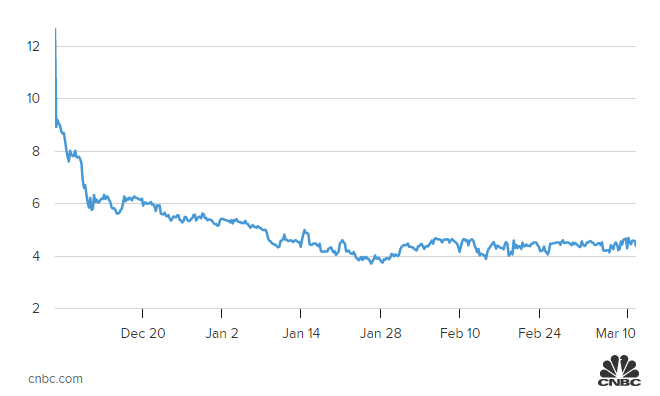There have been few digital media companies to grace CNBC’s annual Disruptor 50 list in its 10-year history, in part because it’s a difficult industry to make money. Even though everyday life has been centered online, it’s the gatekeepers of the internet who keep most of the money, like Google and Facebook. The focus on viral content made sense for BuzzFeed with the rise of Facebook and changes in advertising.
The platform, which entered CNBC’s inaugural Disruptor 50 list in 2013, began in 2006 with a focus on lists, videos and memes that are promoted through social media. But trusting the internet giants is a risk, be it SEO or viral success, as their algorithms and larger business goals shift in ways that might punish the latest successful digital media model, or the audience simply moves on from the latter. fashion in content.
In the years since its inception, BuzzFeed has added more traditional reporting in an attempt to bridge the worlds of snackable content with breaking news and investigative journalism — it won a Pulitzer Prize and was at the center of the media storm during the presidency of Trump. about the “Stele file” when its then editor-in-chief Ben Smith decided to publish the document.
It hasn’t been a smooth ride financially, and investors have been wary of the future of digital media companies in recent years. BuzzFeed notably missed its 2015 revenue targets. At the time, press reports indicated that BuzzFeed’s shift to a “distributed” media strategy, where the goal is to find large audiences beyond its own websites and apps, was a big deal. part of the challenge. Attracting a lot of clicks on Facebook and Snap didn’t necessarily translate into massive advertising revenue.
Throughout its history, BuzzFeed has progressed in the pursuit of new revenue streams. A great example, Tasty, Facebook’s video brand dedicated to food, along with other branded video projects. But it was only a matter of time before the content landscape stopped the original disruptors, especially with the emergence of streaming services and new ways to curate content.
Dealing with technological changes is nothing new in the media, and battles between creators and content distributors are constant, such as negotiations between cable TV companies and content originators. Digital media companies with aggressive growth plans in a tough market could end up where BuzzFeed did: layoff rounds like the one in 2019.
But BuzzFeed flirted with profitability a year later (despite having weathered a slump in digital advertising because of pandemic lockdowns), and the company began to scale, acquiring HuffPost from Verizon Media in a deal that brought the co-founder together. and BuzzFeed CEO Jonah Peretti with HuffPost. a website he co-founded in 2005 with Andrew Breitbart, Arianna Huffington and investor Ken Lerer.
In late 2020, digital media companies rallied, and that was alongside the rise of SPACs, the blank check companies that thrived in a hot initial public offering market as a new generation of equity investors flooded into equities. after the brief collapse of the pandemic.
The public market boom has also allowed original VC investors, including Buzzfeed’s Series A investors, to reap the returns they’ve been waiting for since 2008. The company is down 39% in its first week of trading in December, and its trading have not improved.
BuzzFeed since it went public

As CNBC’s Alex Sherman reported, it was “an unfavorable start to the prospects of digital media companies in public markets.” But he added that there was something positive: “Even if its rating is disappointing, Buzzfeed’s debut gives colleagues something they haven’t had before: a public rating comparison of the market.”
BuzzFeed says that, as a publicly traded company, it will begin to expand the industry, but, as Sherman reported, the speed of consolidation will depend on the personalities of those responsible. “Confidence in BuzzFeed’s future prospects can grease the wheels for consolidation.
BuzzFeed will need external faith in its equity to use it as a viable currency for acquisitions,” he wrote. Now the question is whether BuzzFeed, after making it public, can make the right calls in scale, distribution and audience to regain investor confidence, all within a media landscape where a bet on more disruption is likely to be safe. .
Translated matter from CNBC – Alex Sherman.
The Buzzfeed post becomes public action, but will it be a digital medium in the long run? appeared first on DNAMES.





